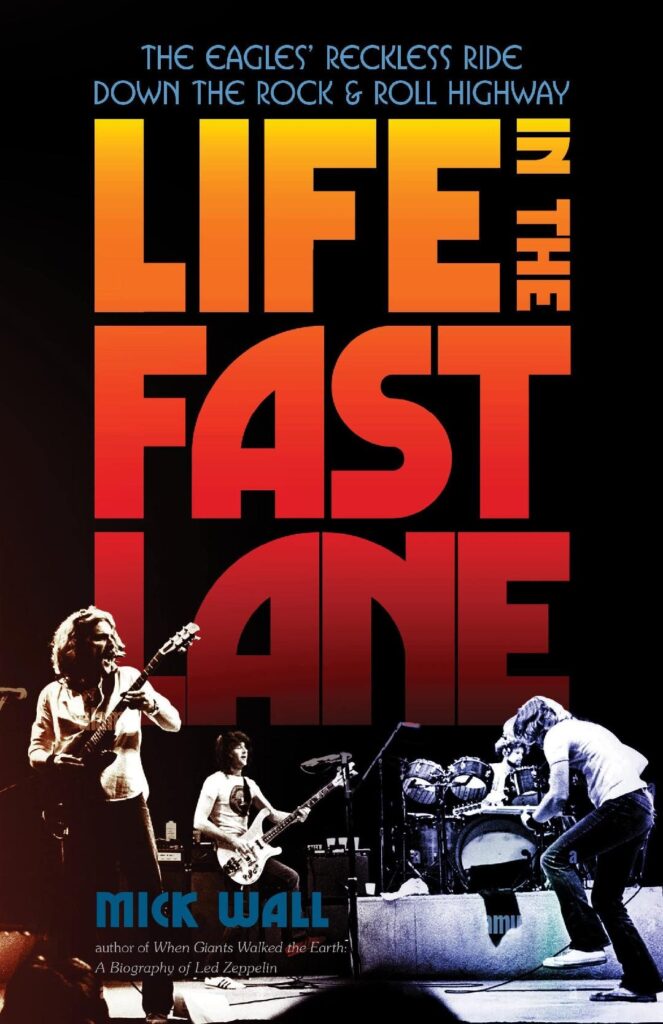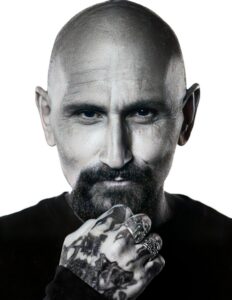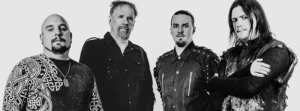Mick Wall – The Eagles Storyteller

1. What initially sparked your interest in writing a book about The Eagles and their journey down the rock and roll highway?
I’m a storyteller and a group like the Eagles and the place and time that birthed them is a massive draw in itself. But I’m especially fond of rock bands that have not received universal acclaim as their stories rarely get told properly. They’re either written by fans or by jilted ex-members etc, or wise-ass critics looking for an easy target.
2. Can you provide us with an overview of the main themes and key events covered in your book?
I’m afraid that list is too long to precis here. Stuff that comes up: LA in the 70s, rock, culture, drugs, the occult, sex, love, good vs evil, real vs unreal, paranoia, obsession, and of course money. A shit ton of money.
3. The Eagles have had a long and storied career. How did you approach condensing their history into a book? Were there any specific challenges you faced in selecting which events to focus on?
All my subjects have long and storied careers. I start out imagining someone who has no idea who or what they were, or still might be. I read all the existing books, 1000s of articles from the 70s up to the present day, watch every DVD, every TV doc, every film, theatre production, YouTube or TikTok clip that might say something about the subject. Add in my own interviews far and wide over five decades, then draw my own experiences as writer, TV and radio guy, podcaster, live performer, record label exec, PR manager, promoter, and my own deep experience of the music biz, of LA, of that world. See what shapes appear on the page. Let the story reveal itself.
4. How did you go about conducting research for your book? Did you have the opportunity to interview any of the band members or people close to them?
In the past I have interviewed 100s of people, including Don and Glenn and Joe and many others related to the band. But here’s the thing. I’m not an explorer. I don’t need to ask anybody about the stuff I already know, or that I often know better than they do. I am a settler. This is where I live on planet rock and have done since the 70s. I’m here to show you around. Not point and go ooh, like some sort of music journalist. I’m here to take you on a ride, and to hell with the consequences. I’m here for the truth and that is something Don Henley is not going to discuss because he doesn’t even know what the truth is himself.
5. The Eagles are known for their distinctive sound and harmonies. How did their musical style evolve over the years, and how did it contribute to their success?
That’s for you to ponder. The book will show you, but the book is not primarily concerned with music. We can all hear the music, make up our own minds. What you can’t do but which the book can is take you back to West Hollywood and Laurel Canyon in the early 70s, is put you on the Lear Jet with the band, put you in the house with the Million Dollar view while Don and Glenn or writing and snorting and drinking and making plans for world domination.
6. The band had its fair share of internal conflicts and personnel changes. How did these dynamics shape the band’s trajectory, both musically and personally?
Every major band has more than its share of conflicts and personnel changes. But these things didn’t shape the story of the Eagles as much as their individual personalities, especially those of the hugely ambitious Don and Glenn. Character is destiny.
7. The Eagles are often associated with the Southern California rock sound. How did their music reflect or respond to the cultural and social climate of the time?
The Eagles were very much of their time, becoming famous just as the ‘we’ 1960s were turning into the ‘me’ 1970s. Their best music reflected not just this loss of innocence, but really evoked the plunge the world took into nothing-is-real darkness. The paranoia of the song ‘On The Border’ coming at a time when Nixon was about to resign, the title track to Hotel California, suggestive of the coke-embalmed world the LA scene had become by the end of the 70s. There is very little joy in otherwise catchy songs like ‘Life In The Fast Lane’ or ‘Lyin’’ Eyes’.
8. Can you share any interesting anecdotes or behind-the-scenes stories from your research that shed light on the band’s experiences and relationships?
No gotcha moments. But there was never likely to be. I spent most of 2019 running around LA and other parts of America chasing Eagles stories. The way I achieve access to knowledge is by not acting like ‘an observer’, a visitor who needs everything explained, but by being one of the people I’m writing about, a guy who gets it, totally unimpressed by everything.
9. The Eagles experienced immense commercial success, but they also faced criticism and controversy. How did these external factors impact the band’s creative process and their relationships with each other?
There’s no quick answer except to say I spend a whole book dealing with these issues, one way or another. I don’t write my books to please the bands or artists or their friends or even their fans. I write my books with only one person in mind: the reader. So that it doesn’t matter whether you ‘like’ their music. It’s all about whether you want to read an unbelievably outrageous true story, whether you are looking for a fucking fantastic book.
10. How do you believe the legacy of The Eagles and their journey down the rock and roll highway continues to influence the music industry and aspiring musicians today?
All artists whether they make music, books, movies, TV, painting or whatever, are well-versed in the history of their media. The Eagles have entered that pantheon. Any aspiring musician today that isn’t aware of their music probably isn’t worth listening to – yet.

Order the book here: Amazon.com: Life in the Fast Lane: The Eagles’ Reckless Ride Down the Rock & Roll Highway: 9781635768909: Wall, Mick: Libros


